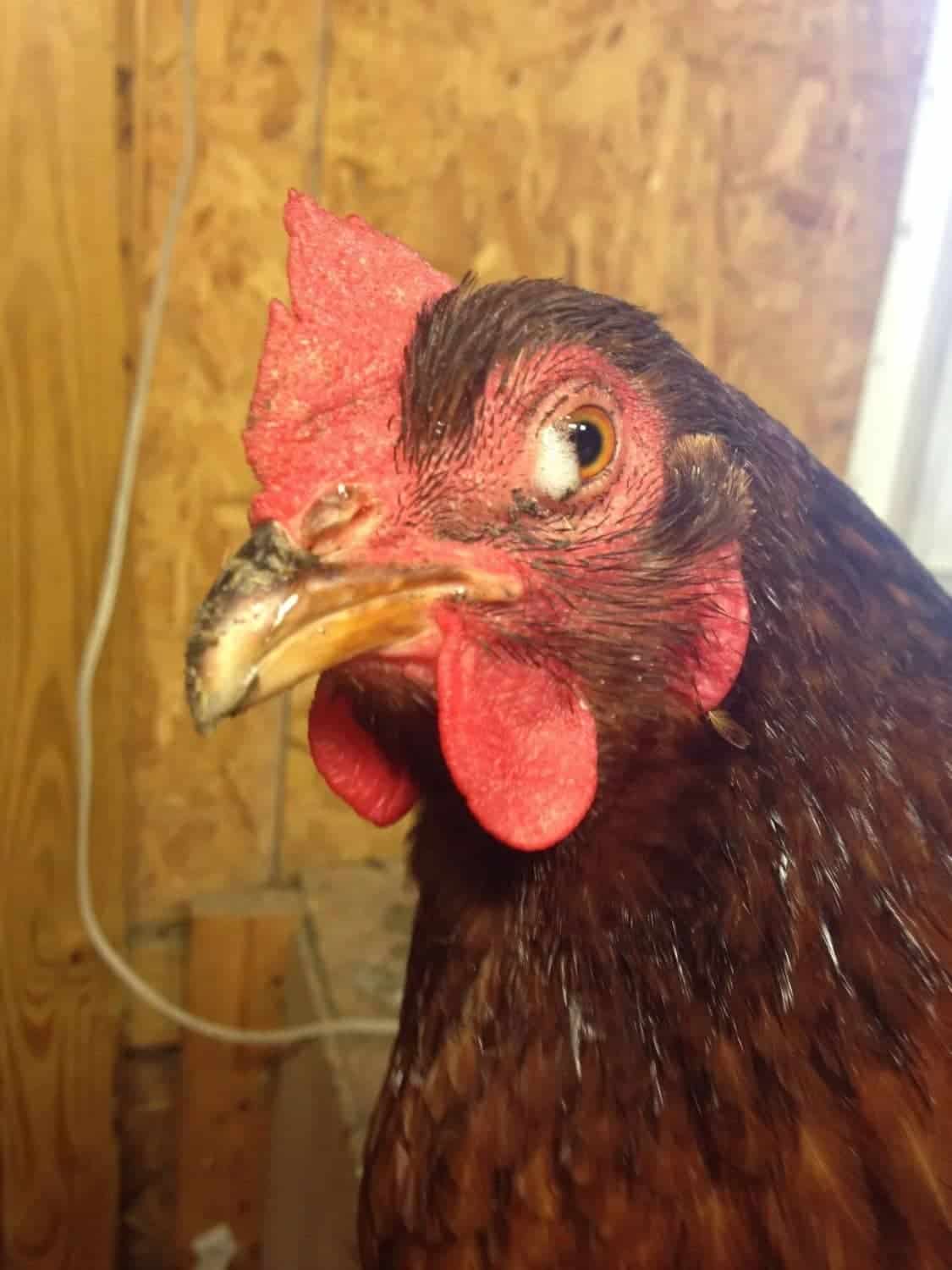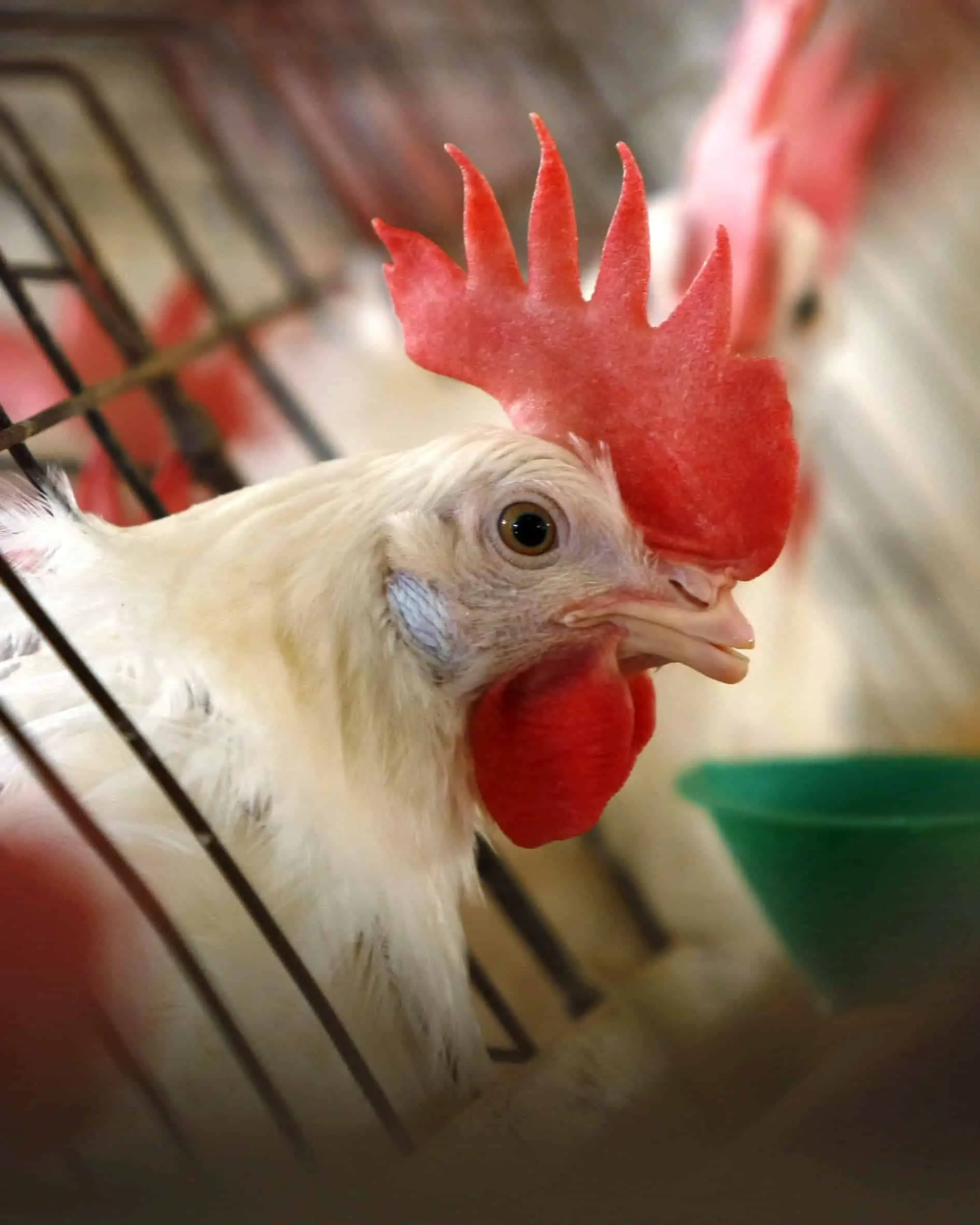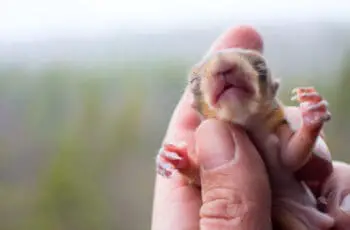While foaming at the mouth as a sign of rabies in dogs, did you know that chickens also foam at the mouth? But why chickens are foaming at the mouth, what are the causes, and what to do?
While it’s not as common, chicken foaming happens if the chicken has been exposed to a poisonous substance, food stuck in the throat, sour crop or death. Often than not, chickens foaming at the mouth is a sign of death and happens before dying. Other times chickens recover themselves or by a vet.
Pesticides, herbicides, and cleaning products are all potential culprits. Foaming can also be a sign of an allergic reaction, respiratory infection, or even heart failure.
If your chicken starts foaming at the mouth, it’s important to take them to the vet right away to rule out any serious health problems.
What Does Chickens Foaming At The Mouth Indicate?
Foaming at the mouth is often a symptom of drug overdose, seizures, and rabies in humans but it can also be a sign of other medical conditions in humans. However, chickens foaming at the mouth indicates chicken is infected with poisonous, seizures, and digestion issues but not rabies. There are some animals which never get rabies according to the Indiana wildlife department, such as rabbits, squirrels, chipmunks, chickens and more.

What Are The Early Signs of Foaming At Mouth?
Seizures, loss of consciousness, and difficulty or stopped breathing are all signs that a person is foam at the mouth. When someone has a seizure, they may act violently and fall to the ground and convulse. This can cause them to froth at the mouth. If they lose consciousness, they may also stop breathing.
Other than that, biting tongue, frothing and incontinence are also signs of chickens foaming at the mouth. Chicken having a hard time breathing is a common symptom of respiratory disease, heart disease, digestive issues, and chickens foaming at the mouth.
When Does Foaming At Mouth Happen?
When a body has an excess of saliva in its mouth or lungs, and this is mixed with air, it can create foam. This can happen for a variety of reasons, including when someone is vomiting, gastroenteritis, nasal discharge, or is taking certain medications.
In some cases, it can also be a sign of a more serious condition, such as respiratory problems. If you see someone foaming at the mouth, it is important to seek medical attention immediately.
What To Do If Chickens Foaming At Mouth?
If your chicken is foaming at the mouth, it is likely to experience an allergic reaction. This can be caused by a number of things, including food stuck in the throat or contact with chemicals or other irritants.
Food Stuck In The Throat
When a chicken is foaming at the mouth, it is a sign that something is stuck in the bird’s throat.
The first step is to try and dislodge the object by gently tipping the chicken’s head downwards and massaging the neck. If this does not work, then you will need to reach into the chicken’s mouth and remove the object yourself.
Be careful not to get bitten, and try to avoid touching the bird’s tongue if possible. Once the object has been removed, give the chicken some water to drink to help wash away any irritants. If the chicken is still foaming at the mouth, or if it appears to be in distress, then it should be taken to a vet for further treatment.
Sour Crop
If you notice your chicken foaming at the mouth, it’s usually a sign of sour crop, a condition caused by an overgrowth of yeast in the crop. The sour crop can be painful and deadly for chickens.
The first step is to give your chicken a warm water bath. This will help to loosen the yeast and bring some relief.
Next, you’ll need to massage the crop gently to help break up the foam.
Finally, give your chicken a few drops of an antifungal solution to help kill the yeast. With prompt treatment, most chickens will recover from sour crop without any lasting effects.
Why Is My Chicken Breathing with Its Mouth Open?
There are a few reasons why your chicken might be opening its mouth.
Amongst my many poultry-rearing questions, “Why is my chicken opening its mouth?” was one I hadn’t considered before observing this behavior in my flock. After some research, I discovered that there are a few reasons why chickens may open their mouths while seemingly standing still.
Swallow Food
This unusual behavior is actually quite common and is generally nothing to worry about. Chickens typically open their mouths when they swallow large pieces of food or when they are hot and panting to cool down.
In both cases, the chicken is simply trying to speed up the process of getting food or water into its body. However, if your chicken appears to be gasping for air on a regular basis, it could be a sign of a more serious problem. respiratory infections, heart disease, and digestive issues can all cause difficulty breathing, so it’s important to contact a veterinarian if you notice your chicken having trouble catching its breath.

Cool Off
If a chicken is opening its mouth in summer in hot weather along with keeping its wings away from its body, the chicken is just trying to cool off. Chickens don’t sweat, so they pant to evaporate moisture from their lungs and keep their body temperature down. If you notice your chicken is panting heavily, it’s likely because the weather is hot and humid.
Take oxygen
Another reason your chicken might be opening its mouth is because it’s trying to take in more oxygen. This could be due to exercise, excitement, or anxiety.
Drink Water
Chickens also open their mouths when they are drinking water. This allows them to take in larger swallows, which helps them to stay hydrated on hot days. Finally, chickens sometimes open their mouths as a sign of submission. If another chicken is pecking it or dominating it in some way, the submissive chicken will often open its mouth in a gesture of peace.
Breathe

Firstly, chickens breath through their mouths as well as their noses, so it’s possible they are simply taking a deep breath of air. Secondly, chickens use gaping to cool down; by opening their mouths and flapping their gills, they can increase evaporation and heat loss. Thirdly, chickens may open their mouths to yawn or stretch; just like us, they need to keep those muscles flexible!
illness
Lastly – and most concerning to me as a flock keeper – sometimes chickens open their mouths due to illness or discomfort, such as respiratory distress or an issue with crop ingestion. If you observe your chicken opening its mouth frequently or for long periods of time, it’s best to speak to a vet in case of underlying health issues.
How Can You Tell A Chicken Is Dying?
There are several signs that can indicate a chicken is dying.
- One of the most obvious signs is if the chicken is standing very still and not moving around. This can be a sign that the chicken is too weak to move or is in pain.
- Another sign that a chicken is dying is if it stops eating and drinking. If a chicken is not taking in any food or water, it will eventually starve to death or die of dehydration.
- Chickens also tend to get fluffed up when they are sick or dying, due to their body trying to conserve heat.
- Finally, a sign that a chicken is dying is if it hunches over and looks lethargic. If a chicken is exhibiting any of these signs, chances are it’s likely going to die soon.
What Are The Signs of A Sick Chicken?
Chickens are sensitive to a number of diseases and health problems, so it’s important to be able to recognize the signs that a chicken may be sick.
Some common indications that a chicken is ill include hiding, inactivity, pale comb or wattles, unusual droppings, unusual posture, lethargy, and lack of appetite. As well as, chickens that are sick may produce fewer eggs than usual. If you notice any of these signs in your chickens, it’s important to consult a veterinarian as soon as possible to get them the treatment they need.
What Does It Mean When A Brown Liquid Came Out Of Mouth?
Definitely death. When a person dies, their body releases urine, foaming at mouth and poop. And thus when chickens die, a brown liquid comes out of mouths which is saliva. But unlike humans, it doesn’t release poop when it dies.
What Does Chicken Making Noise When Breathing Indicate?
If you notice that your chicken is making unusual noises when they breathe, it may be gapeworm. Signs like coughing, wheezing, and difficulty breathing are common signs of respiratory problems in chickens. This parasite lives in the bird’s lungs and windpipe, causing them to make a ‘gaping’ sound as they gasp for air.
Gapeworm can be fatal if left untreated, so if you suspect your chicken may have this condition, please see a veterinarian as soon as possible.
Another possible cause of respiratory distress is infectious bronchitis, which is a viral disease that affects the bird’s trachea and lungs. Infectious bronchitis is highly contagious and can quickly spread through a flock. If you think your chicken may have this disease, please contact a qualified poultry vet for diagnosis and treatment.

What Does Chicken With Raspy Breathing & Chicken Gurgling When Breathing Indicate?
If your chicken is gurgling or sounds like it has raspy breathing, there is likely a respiratory problem. One of the most common respiratory illness in chickens is infectious coryza, Mycoplasma, and Infectious Bronchitis.
All of these are caused by bacteria and symptoms include rales (a harsh, rattling sound when breathed in), sneezing, nasal discharge, watery eyes, sinusitis, and swollen head. If not treated, chickens can quickly die from this disease. Another common respiratory illness is mycoplasma syncytial virus (MSV), which is caused by a virus. Symptoms of MSV include coughing, sneezing, rales, shortage of breath, and airs acculitis (inflammation of the air sacs).
As with infectious coryza, if not treated, MSV can be fatal to chickens. If your chicken is showing any signs of a respiratory problem, you should take it to a vet as soon as possible for treatment. Chickens are susceptible to other illnesses as well, so it’s always important to keep an eye on your flock’s health and seek medical help when needed.



